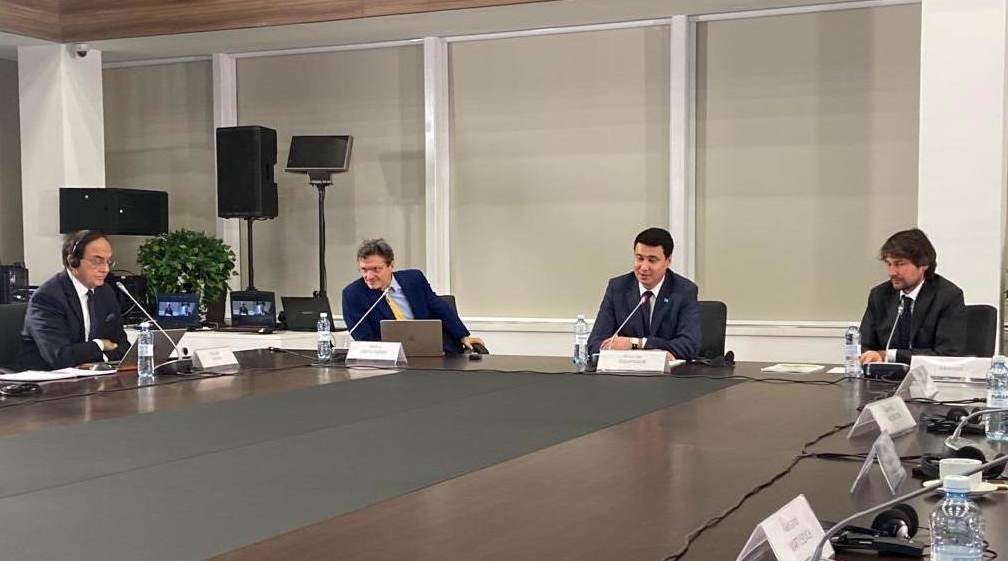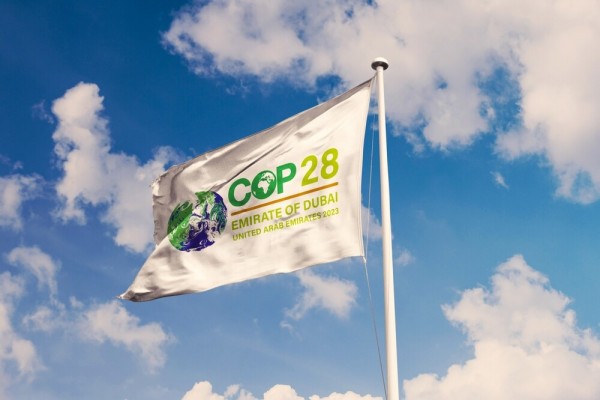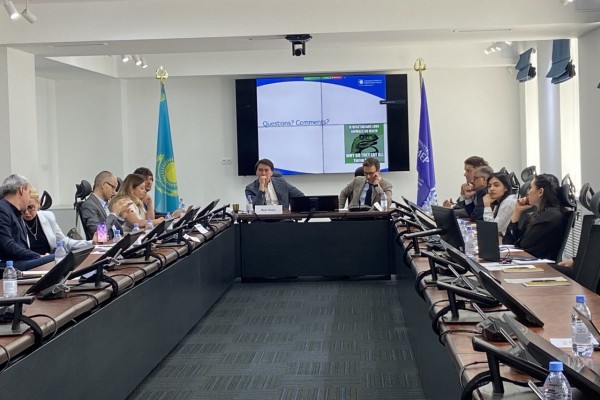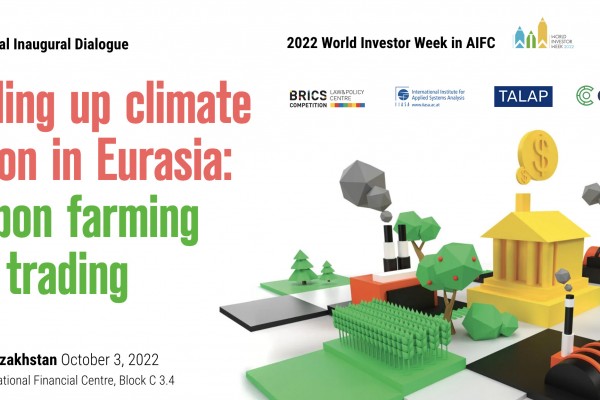On October 31, the International BRICS Competition Law and Policy Centre at the HSE University and the HSE Centre for Technology Transfer together with the International Institute for Applied Systems Analysis (IIASA) presented the working version of the research report entitled "Carbon Farming in Kazakhstan: Unlocking the Opportunity" in Astana (Kazakhstan). The event was a continuation of the discussion started at the conference last year.
Carbon farming is a set of sustainable practices and methods that improve the uptake and retention of carbon from the atmosphere in soils. Such technologies, unlike industrial carbon sequestration methods, are more efficient, lower cost, and can be widely applied. They also restore soil quality and bring significant additional environmental and socio-economic benefits.
The report explores the positive effects of deploying carbon farming practices in regions with semi-arid and arid climates, using Kazakhstan as an example. The main problems of farming in such regions are moisture deficit and loss of soil organic matter (humus), which affects soil health and its ability to fulfill its functions. Illustrative examples in Kazakhstan are the virgin areas in the north of the country and the Aral Sea region in the southwest.
The reason for the growing relevance of carbon farming is that it is one of the few ways to reduce environmental impact without having to reduce economic activity and, therefore, without socio-economic risks, said Alexey Ivanov, Director of the BRICS Competition Centre.
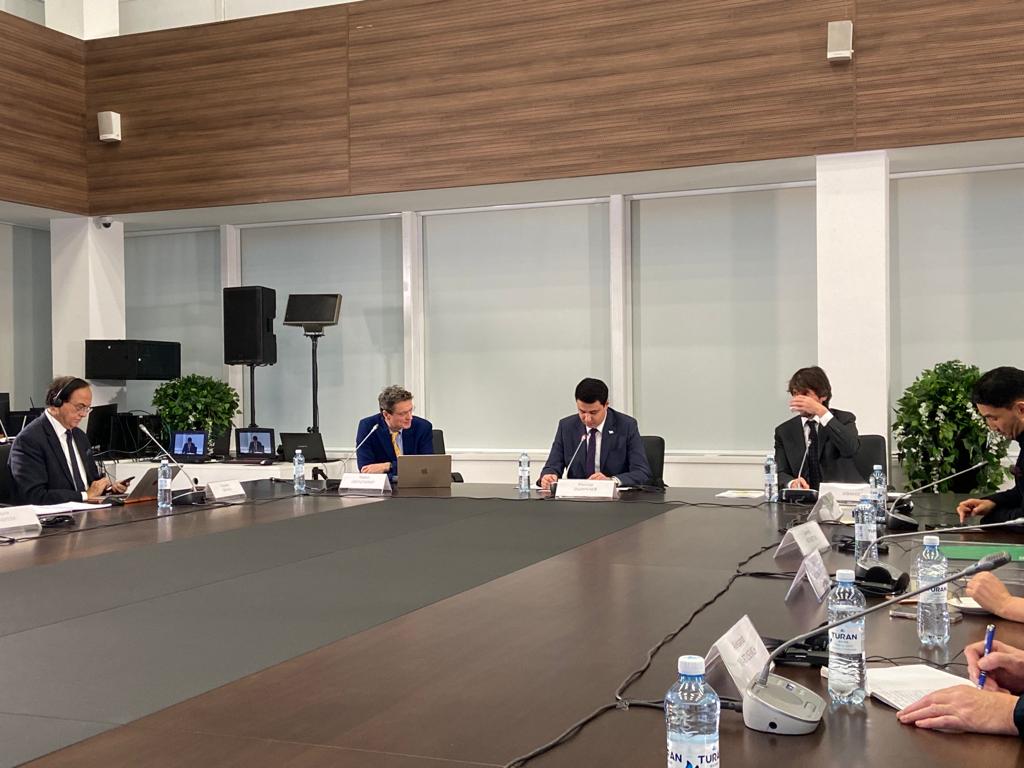
The potential of Kazakhstan as a driver for the development of carbon farming technologies in Eurasia was also emphasized by Mansur Oshurbaev, Vice Minister of Ecology and Natural Resources of Kazakhstan. Of the country's 183.4 million hectares of pasture land, 34 million hectares are degraded. With the introduction of carbon farming methods, these lands can bring not only climatic, but also significant environmental and socio-economic benefits, the Minister emphasized. "It is necessary to work out a formula for optimal distribution of offset units generated between compulsory and voluntary, as well as domestic and international markets. This will allow agricultural producers and land users to maximize their income, and the state - to successfully implement the volume of emission reductions provided for by the Paris Climate Agreement," said Mansur Oshurbaev.
Kazakhstan has every chance to become a leader in introducing carbon farming methods, while modernizing the country's technological structure and creating many jobs, agreed Rakhim Oshakbayev, Director of TALAP Center for Applied Research. He also put forward a proposal to develop a specific roadmap for the development of such projects.
More about how carbon farming and carbon market as elements of environmental policy of Kazakhstan can contribute to the achievement of carbon neutrality and act as an important stimulus to socio-economic development of the country, told Michael Obersteiner, Director, Environmental Change Institute, University of Oxford & Principal Research Scholar, International Institute for Applied Systems Analysis (IIASA). In the context of the conversation about the evolving practice of carbon offset trading, it was noted that voluntary carbon markets have reached nearly $2 billion globally and are projected to grow many times over the coming decades. Proprietary carbon unit projects have already been launched in Australia, the UK, the EU, the US and China. According to OECD estimates, in order to achieve a zero emissions balance by 2050, the carbon price should be $147/t CO2-equivalent by 2030. At the same time, the potential for absorption/reduction of emissions on cultivated land in Kazakhstan is estimated at up to 35 million tons of CO2-equivalent/year. This represents billions of dollars of revenue for the agricultural sector, which is important in terms of improving the welfare of farmers, who tend to be in a more vulnerable position than urban dwellers.
"Kazakhstan's future experience in introducing carbon farming and carbon sequestration technologies can be scaled to the Asian Dry Belt region. Kazakhstan's program can become an example for other countries looking for ways to achieve their climate goals,"
the expert concluded.
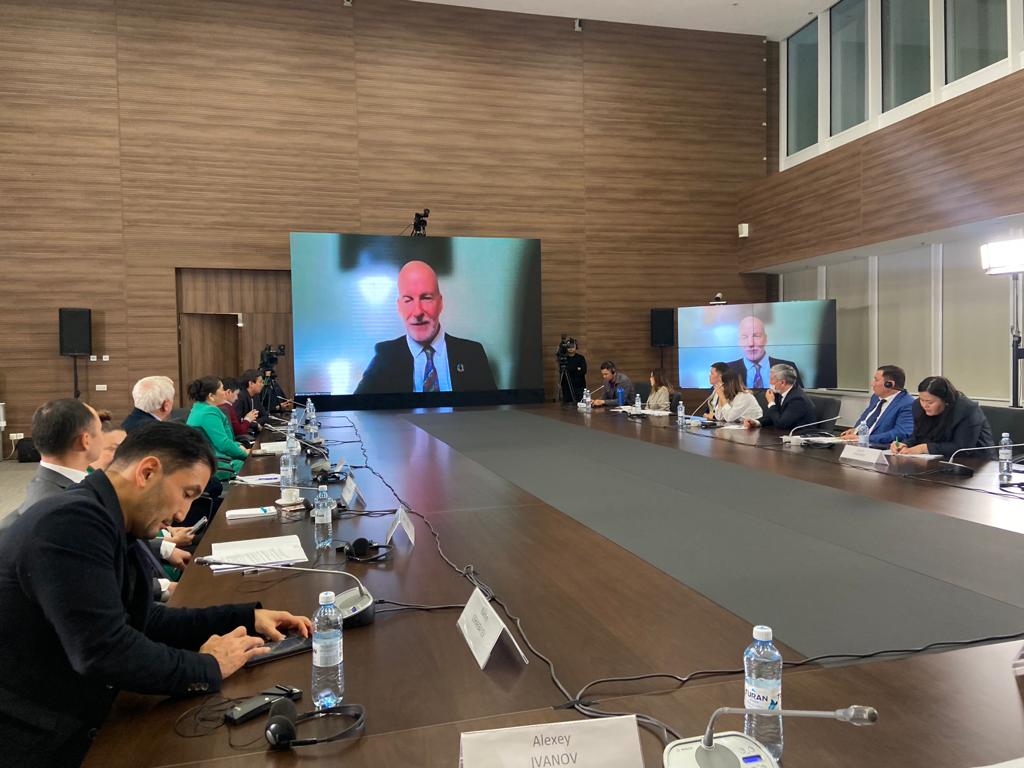
Dr. Barron Joseph Orr, Lead Scientist for the United Nations Convention to Combat Desertification (UNCCD), also spoke in support of further scaling up the Carbon Farming and Sustainable Land Management program beyond Kazakhstan. Kazakhstan is a very important party to the Convention and is an innovator in the field of carbon farming, and the presented large-scale report can complement the discussion at the The sixteenth session of the Conference of the Parties (COP 16) to the United Nations Convention to Combat Desertification (UNCCD), which will be held in December in Saudi Arabia, said the speaker.
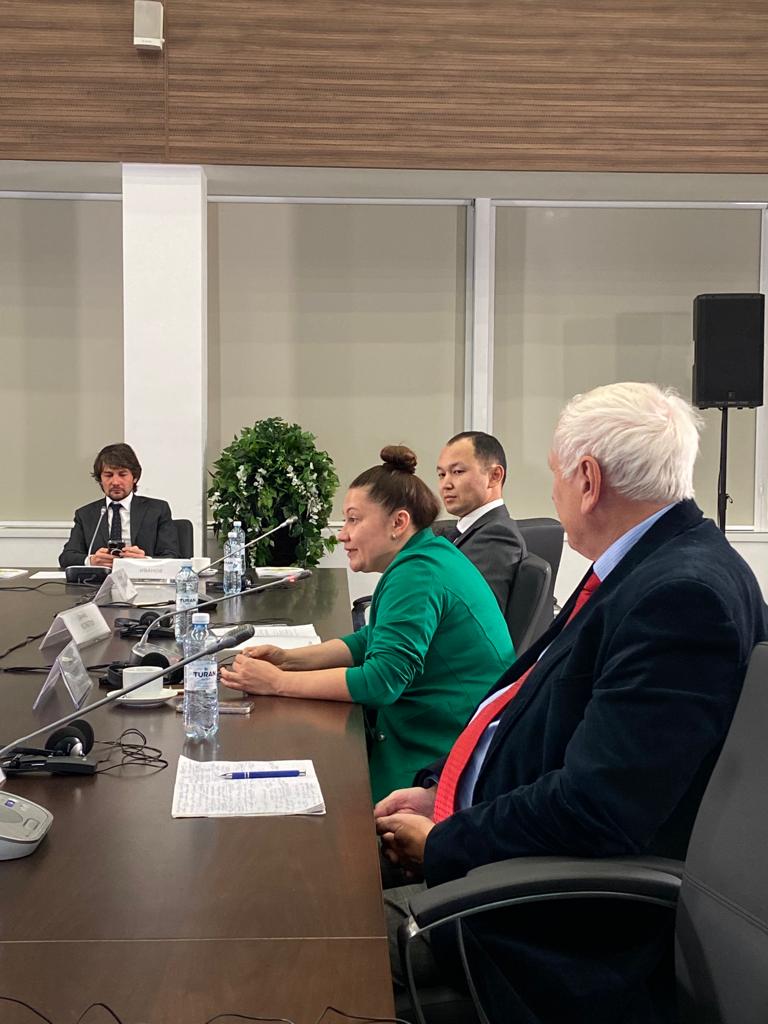
Elena Rovenskaya, Program Director of the International Institute for Applied Systems Analysis (IIASA), noted the importance of taking into account international experience in the development of environmental projects. Even those countries and regions that are reluctant to cooperate on other issues are coming together to address climate issues, she emphasized.
The carbon market is a new fast-growing segment of the financial market, and carbon units represent a distinct asset class and an opportunity to develop new infrastructure in the financial sector. Daniyar Kelbetov, Chief Product Officer, Member of the Management Board, Astana International Financial Centre (AIFC), told about this, as well as the potential of the AIFC in terms of integration with international markets. In 2020 in Kazakhstan were first launched "green" bonds in the amount of $ 500 thousand, today the market of sustainable finance, if we take only "green" bonds and loans, is about $ 450 million, he said. "It is necessary to maintain a register of carbon units and prevent their duplication, and verification of offset projects should meet international standards", emphasized Daniyar Kelbetov.
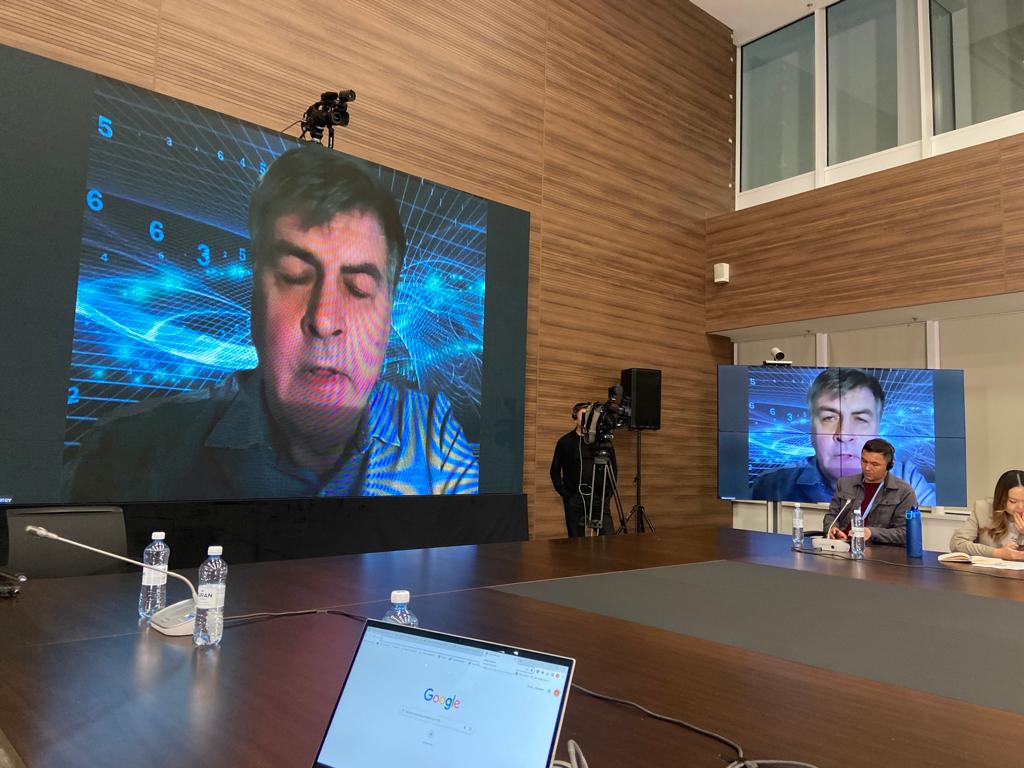
The prospect of creating a unified system of carbon balance accounting in the world is quite realistic, believes Nikolai Durmanov, Director of the Carbon benchmarking site Kaluga's First. In his opinion, such a mechanism will be created within the next few years. Kazakhstan, with its vast land resources, can work out technologies for remote control of the carbon balance at test sites, and then properly certify and replicate them.
The report will serve as the basis for a large carbon farming program with international cooperation, said Pradeep Monga, Former Deputy Executive Secretary of the United Nations Convention to Combat Desertification (UNCCD). It is time to ask the Global Environment Facility (GEF) and the Green Climate Fund (GCF) to fund the next phase of the study to start working on a roadmap, build capacity, and engage the farming community, he urged.
Implementation of many eco-projects is impossible without government support, intersectoral approach and coordination of efforts of several ministries at once, in particular, the Ministry of Agriculture, the Ministry of Ecology and Natural Resources and the Ministry of Water Resources and Irrigation, emphasized Aleksander Martusevich, IIASA Guest Senior Research Scholar. Saule Sabieva, Acting Director of the Climate Policy Department of the Ministry of Ecology and Natural Resources of the Republic of Kazakhstan, agreed with him. The need to develop carbon farming is mentioned in Kazakhstan's adopted Strategy for achieving carbon neutrality until 2060, and the Ministry of Ecology is ready to cooperate in launching a pilot carbon project in Kazakhstan, said Ms. Sabieva.
"If with the support of the Ministry of Ecology and Natural Resources of the Republic of Kazakhstan a comprehensive program for the development of carbon farming is implemented in the country, with the participation of experts from the BRICS Centre, a project on soil remediation in the territory of the Semipalatinsk landfill on 1.8 million hectares can be launched. These lands are unsuitable for food production, but can be used for carbon farming. In addition, there are great prospects for expanding the geography of cooperation: today we have launched technology transfer to Kazakhstan, in the future our partners may be Iran, India, China, Saudi Arabia, Egypt and other BRICS countries",
emphasized Alexey Ivanov.
Having presented a report at the 28th UN Climate Change Conference (UN COP 28) in November in Dubai, Kazakhstan could join the global discussion on methods and rules for the functioning of the carbon market under Article 6.4 of the Paris Agreement.
"If you do not participate in the development of rules, they will not reflect your local peculiarities. We propose to start moving in this direction and develop the most acceptable and effective solutions for Kazakhstan,"
Ivanov said.

At the end of the meeting, the participants declared their readiness for more concrete steps to find investors and practical development of pilot pilot projects on carbon farming. In addition, there was a discussion on the report with the participation of representatives of the carbon benchmarking site in Pavlodar region, experts and employees of the Ministry of Ecology of Kazakhstan and Zhasyl Damu JSC (engaged in the creation of conditions for the preservation, restoration and improvement of environmental quality).
The co-organizers of the event were the International Institute for Applied Systems Analysis (IIASA), the HSE Centre for Technology Transfer and the TALAP Center for Applied Research. The event was organized with the support of the Government of the Republic of Kazakhstan and the Astana International Financial Centre (AIFC).
